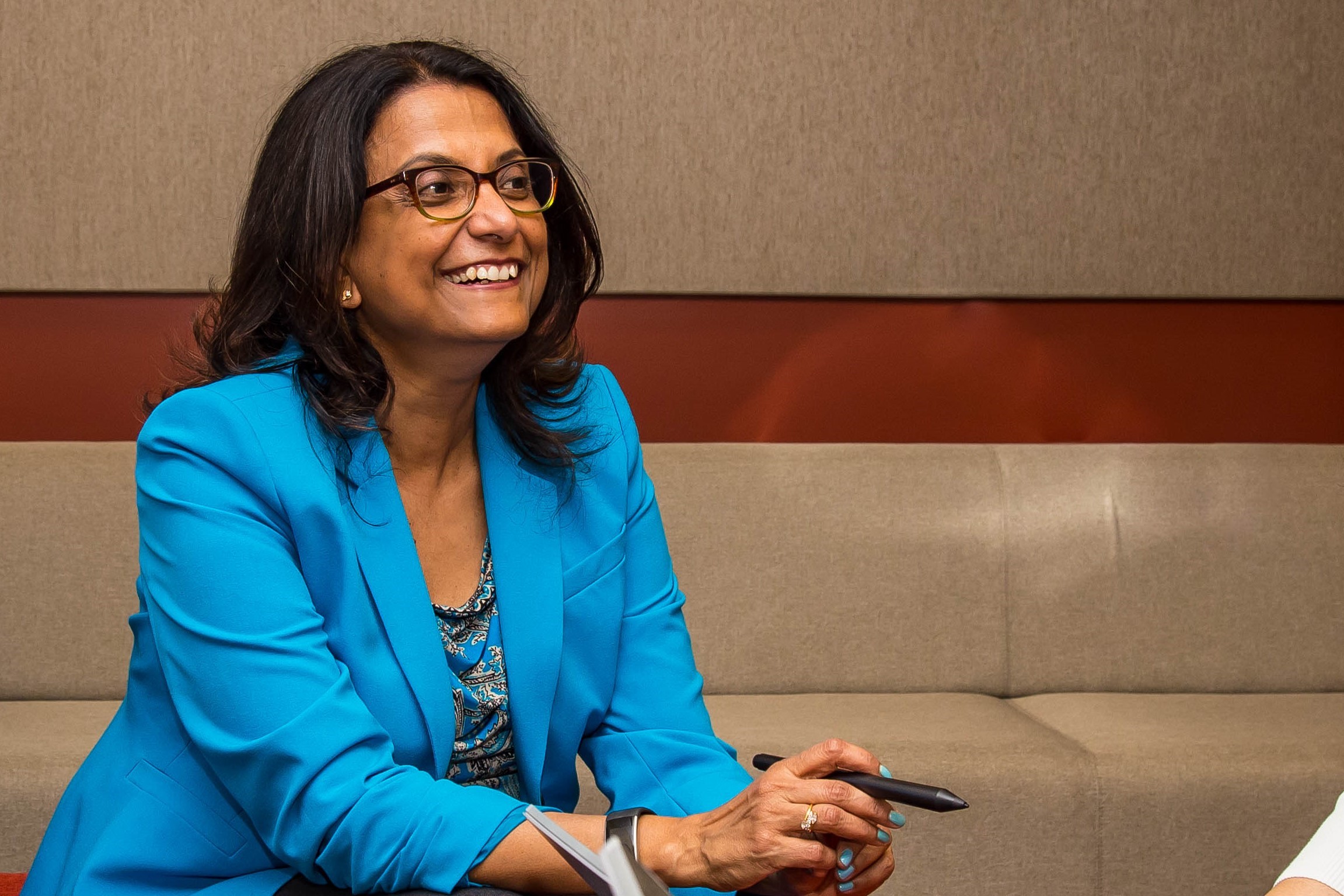By Sarmila Basu
Numbers don’t lie, and they don’t judge. They don’t care if you’re a woman, or where you grew up, or if you speak with an accent.
These are some of the thoughts I’ve had after speaking at two high-powered gatherings in the US: the Grace Hopper Celebration of Women in Computing Conference and the Women in Statistics and Data Science Conference. After my presentations, I met with diverse groups of young women who are entering fields rooted in math and science. They wanted to know how I got here, what kind of training I’ve had, how I got on the management track, and how I came to lead a data analytics team at Microsoft’s global headquarters.
I was honored and humbled by the experience. I was also proud, not about where I’ve come, but that the questions they are asking at the beginning of their careers are different than the ones I asked at the beginning of mine. Instead of wondering if they could pursue a career in data analytics, they asked me what steps they should take to become a leader in the data analytics field.
ALSO READ: Resuscitating a dream to save lives with data science
And while the questions are different now, and women and people of diverse backgrounds have more opportunities than when I was coming up, we have much more work to do. The Science, Technology, Engineering, and Math (STEM) field is still dominated by men, and even more so the senior or technical roles. For a variety of reasons, girls are not choosing to study these subjects in school as often as boys do. And when they do, they are still fighting for equality in many ways.
Yet despite all of this, I firmly believe the tide is turning, and that, if we keep pushing hard for more opportunities, there is reason for optimism. All I must do is look back at how I persisted in my journey from Calcutta, India, to Redmond, Washington, and then think back to the young people I met at Grace Hopper and Women in Statistics and Data Science to know this is true.
Growing up in India in the 1960s and 70s, it was typical for more emphasis to be placed on boys—they were encouraged to go into STEM fields, whereas girls were typically expected to study humanities (literature, history, etc.). If you were lucky like me, and you had progressive parents who could afford private school, you absolutely went to an all-girls school where you could mostly pursue your career of choice (contending with some raised eyebrows if you leaned toward math and science). I attended all-girls schools from childhood all the way through getting my undergraduate degree in economics at Lady Brabourne College in Calcutta. It was only when I got my master’s degree in econometrics at Calcutta University that the classes I took were integrated with men.
You would think that attending a private school meant I would have a leg up on getting into a STEM field, but to me it felt like something I had to fight for every day. In secondary school, I remember we had only one math class and one science class per day, compared to plenty of writing, literature, and humanities classes. In primary school, my father always used to complain that we didn’t have enough math homework. At one of my parent-teacher conferences, he complained to the teacher, and the next day she gave us a bunch of extra math homework. The other students were like, “What’s with all the math?” My teacher looked at me, and said “you can thank Sarmila’s dad for that.”
ALSO READ: Andrea Della Mattea: Take a risk and dream big
This kind of subtle, limiting thinking continued throughout. When I was ready to graduate with my undergraduate degree in economics, I went to get a letter of recommendation for graduate school, and one of my professors actually blurted out, “When are you going to start a family?” Eventually, it worked out. I persisted enough to get my master’s degree, moved to the United States to get my doctorate, and launch myself into a career that eventually landed me at Microsoft.
All my life, until I finished my Ph.D., I had a poster of an eagle flying alone in the twilight sky. That eagle was my talisman, always reminding me that, “In Life, Your Attitude Determines Your Altitude.” Working in tech in my era, I learned to tough it out, to hold on to my dreams, and to pick my battles. When things get challenging, I always think back to that eagle.
When I was talking to those young women at those conferences, I told them, “at times, even today, you’ll face stereotypical attitudes—you need to keep pushing for change. We all have come a long way on our circuitous journey. The tides are changing, and women are now ahead of where they used to be. But that said, firm conviction in yourself is your best ally.”
Sarmila Basu is Senior Director, Data and Decision Sciences at Microsoft and is based at the company’s headquarters in Redmond in the U.S. state of Washington. She was born and raised in India’s third largest city, Kolkata (formerly known as Calcutta). She came to the United States 30 years ago as a postgraduate student and completed a Ph.D in Economics. Her parents still live in Kolkata and she visits there once a year. Read more blogs from her here.





